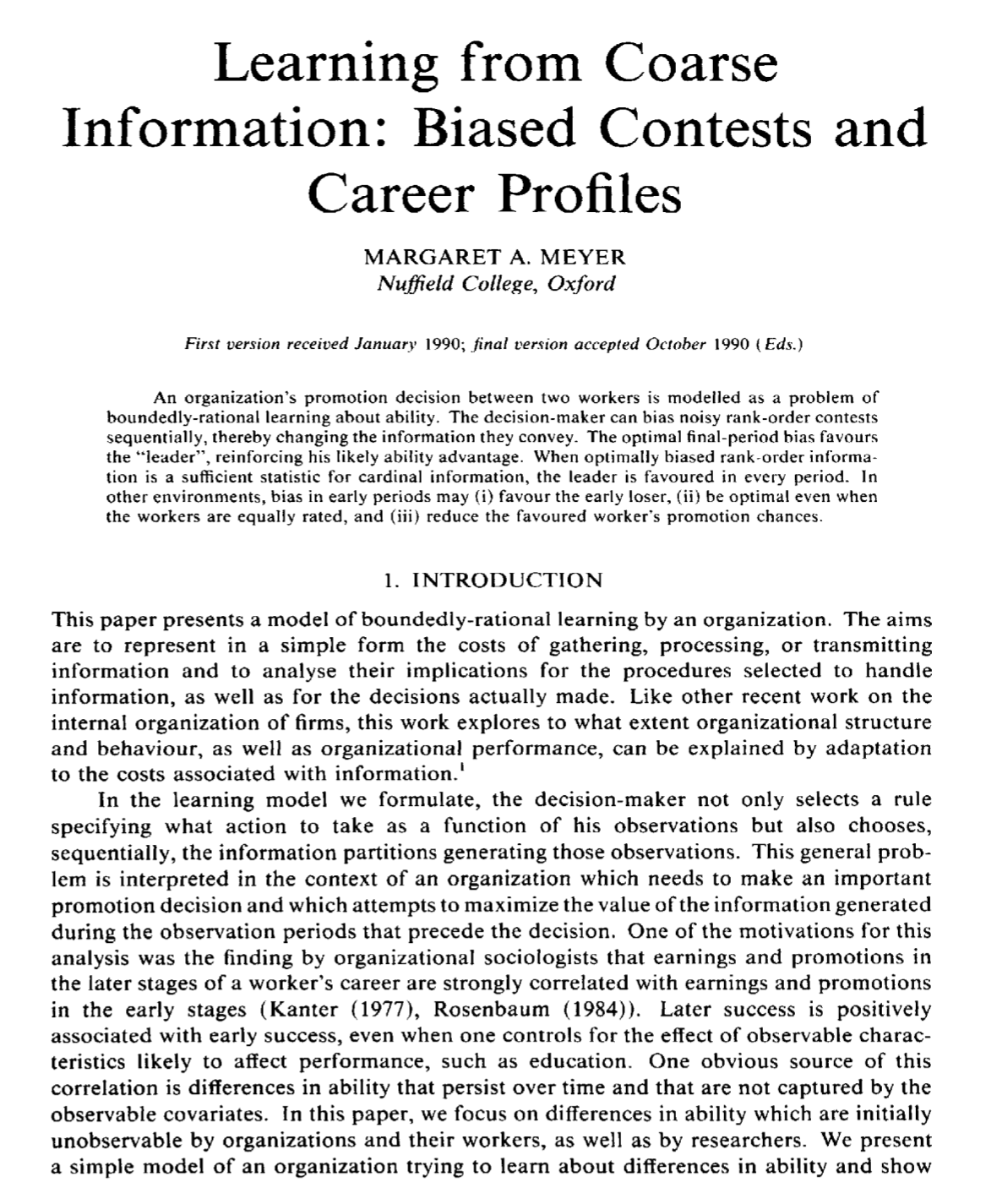Thread
A few simple facts that some people find surprising the first time they hear them.
Imagine $100 is behind door A or B and I give you independent hints about which. The hint says either A or B but is right only 55% of the time.
First hint is worth $5, second hint is worth... $0!
Imagine $100 is behind door A or B and I give you independent hints about which. The hint says either A or B but is right only 55% of the time.
First hint is worth $5, second hint is worth... $0!
Why? Because the second hint never makes you *want* to change your decision. (Think about the four possible hint combinations.)
This is a key idea behind a beautiful paper by Meg Meyer, here:
2/
This is a key idea behind a beautiful paper by Meg Meyer, here:
2/
If you want the second hint to be useful, you need to make it biased, "favoring" the leading option, so that if it comes back a surprising negative against the leader, you might actually change your decision.
Meyer uses this to derive implications about organizations.
3/
Meyer uses this to derive implications about organizations.
3/
Anyway, coming back to our clues. If I give you a million clues, that's worth.... about $50, since you'll guess right basically for sure.
How does the value of information behave in between? How much are 8 clues worth? I found the answer to this unexpected too.
4/
How does the value of information behave in between? How much are 8 clues worth? I found the answer to this unexpected too.
4/
I thought 8 clues would be worth considerably more than 1 clue. Maybe not 8 times more but, like, 4 times more?
5/
5/
In fact, you were willing to pay $5 for the first clue, and are willing to pay only $6 more for the next seven clues!
Your probability of guessing right with 8 clues is only about 61%.
So the value of clues goes up rather shallowly.
6/
Your probability of guessing right with 8 clues is only about 61%.
So the value of clues goes up rather shallowly.
6/

